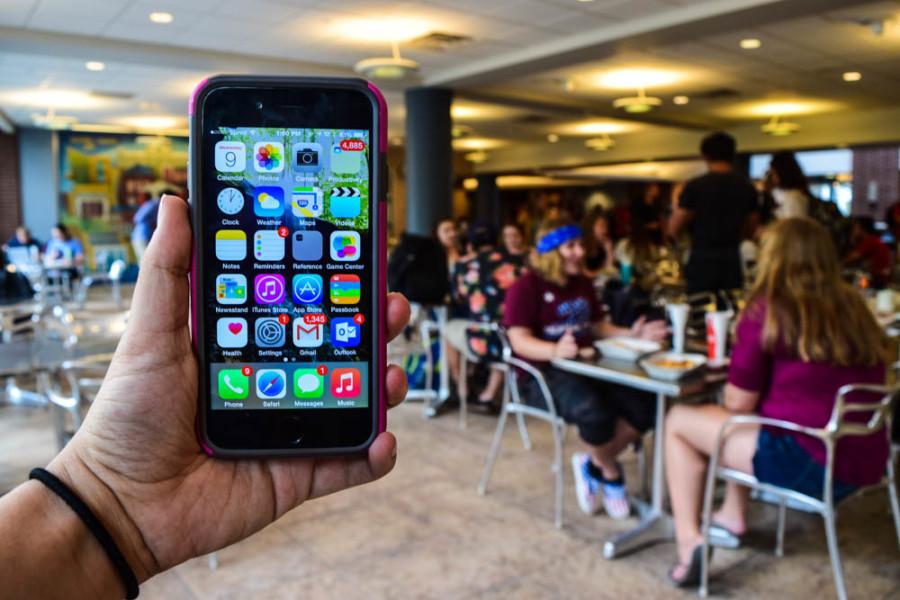Heads up, phones down
September 9, 2015
What makes a person ordinary? Using a phone while having a conversation, of course.
At least that’s the answer according to Dave Parry, an academic advisor and public speaking professor at UA.
So last spring, Parry began an award program to recognize those who show excellent communication skills. The criteria are simple: a student must be speaking with another person face-to-face, sitting or standing without technology being present, or walking without looking down at a phone.
“My criteria is not very hard to see, but it’s very hard to obtain,” Parry said. “It takes me 20 minutes normally to find two people that are engaged in conversation.”
Once he finds them, Parry approaches the students with an award sheet and a ranked list of the top skills that employers want—at the top of the list is verbal communication skills. He’ll then explain who he is, what he does on campus, why he’s giving out awards, and why they received one.
“In this culture, connecting with people is very difficult,” Parry said. “The average person brings a phone with them to most places. So if you are able to sit and talk with somebody and have no distractions, in my mind that makes you exceptional because it’s not done very often.”
Last semester, the program’s first year, he awarded 103 students. Each was then entered into a drawing for a Best Buy gift card and the choice of any charity to donate money to.
Parry is still negotiating the amounts of money, as all of the proceeds come from his pocket; however, in the future, he wants more and different prizes, which he says would be possible if the program had a corporate sponsor. He also wants a “leadership team” of 10 students to help him scout recipients for the award.
The program’s name is “Heads Up-Keep Your Head in the Game,” because students must literally have their heads up to receive the award—not down looking at a phone or other device.
Parry calls cell phones the modern-day cigarettes, as students can’t seem to put them down. But he doesn’t think cell phones have no purpose; rather, those who use them should always be thinking of etiquette.
“Telling people what you’re doing, asking them if it’s O.K., excusing yourself from the room if you get a call,” Parry said. “It’s not necessarily what you think is etiquette, it’s what the person you’re speaking with thinks is etiquette.”
Parry also sees no difference between what good communication is for a public speaker or a personal communicator. He says they each only require “exceptional communication without distraction,” and that “public speaking is really just talking to two or more people in a group,” like conversing with a group of friends or even one friend.
“Because [public speaking] is such a scary thing, the phone is often something we hide behind, because that ain’t scary,” Parry said. “So it’s not that they’re not good at it—it’s that they’re not putting forth the effort [to not use their phone].”
Parry plans on running the program each semester.












